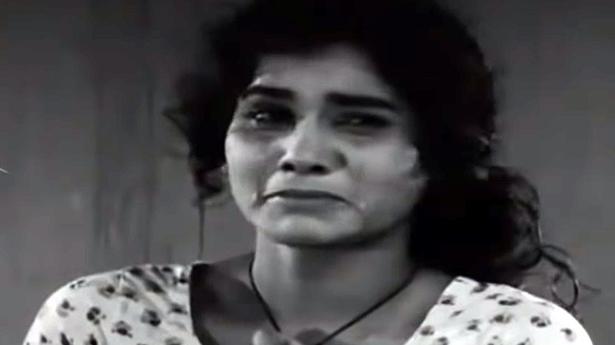
KPAC and Lalitha - a bond of a lifetime
The Hindu
Despite completely shifting to films, the legendary actor carried the initials with pride
KPAC, the familiar initials that adorned KPAC Lalitha’s name, signifies much more than the eight years that she spent at the Kerala People’s Arts Club. It stands for something that had a lasting impact till the end of her life, be it her effortless, natural style of acting or her politics. The young Maheswari Amma, as she was known before, stepped on to the stage at a time of transformation in the theatre arena.
The plays based on the lives of kings and queens or written around religious themes, which were the norm at a time, were slowly making way to more realistic, everyday tales on the struggles of the common folk.
Plays like KPAC’s Ningalenne Communistakki, written by Thoppil Bhasi, were creating waves in every place it was staged. At the same time, women began to play female roles, instead of men dressed up as women, as actors like Adoor Bhasi used to do.
Joining the Geetha Arts Club at Changanassery in the 1950s, Maheswari Amma starred in popular plays like Bali and Galileo. Soon, she also acted in Kakkapponnu for the Prathibha Arts Club, but her intense wish during all this time was to act in KPAC’s plays.
The KPAC was around this time looking for a female actor to stand in for KPAC Sulochana, who was getting busy with her own ganamela troupe. “The club and Thoppil Bhasi wanted someone who could sing, dance and act in the reruns of the troupe’s famous plays. The search for such a face ended up in Maheshwari Amma. As per Thoppil Bhasi’s instruction, KPAC Johnson went and met her. She came for an interview and audition. KPAC’s plays all had characters who are familiar to us, especially those of rustic neighbourhood women. As soon as she came in, the club realised that this was someone suited to its style,” says A. Shajahan, the current secretary of the KPAC. In her autobiography Kadha Thudarum, she writes about those heady days, most of which were spent in the troupe’s van, heading from one stage to the next.
Yudhakandam, written by Thoppil Bhasi, was her first play at KPAC in 1965. Bhasi, who named her KPAC Lalitha, would soon become her mentor and a guide to her till the end of his life.
In those early days, he famously remarked that she was someone who would succeed just with her voice. “Before putting on the makeup for every film, I remember Bhasichettan. It seemed the characters from his pen were created just for me,” she had written.

Describing the Special Intensive Revision (SIR) drive under way in Bihar as “an invasive reconstruction of the electoral roll,” Dipankar Bhattacharya, general secretary of the Communist Party of India (Marxist-Leninist) Liberation, said States including Kerala should be on guard as it could be applied in other parts of the country as well.

 Run 3 Space | Play Space Running Game
Run 3 Space | Play Space Running Game Traffic Jam 3D | Online Racing Game
Traffic Jam 3D | Online Racing Game Duck Hunt | Play Old Classic Game
Duck Hunt | Play Old Classic Game










